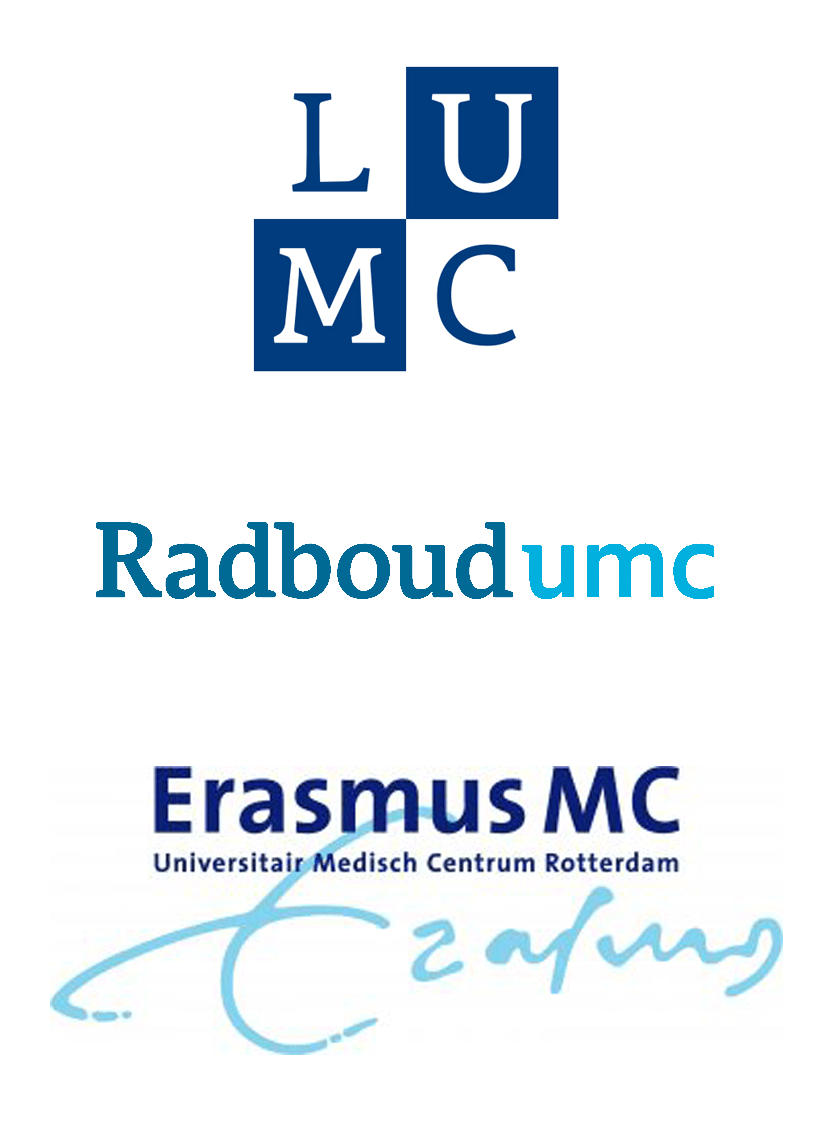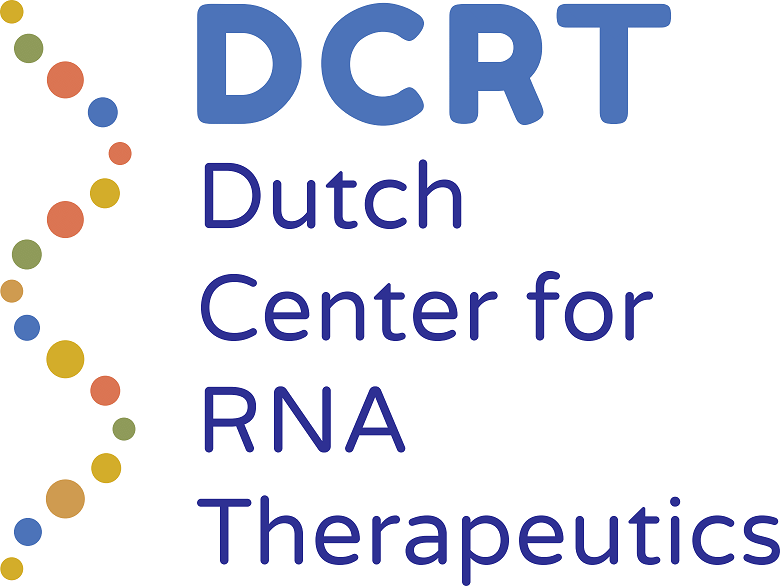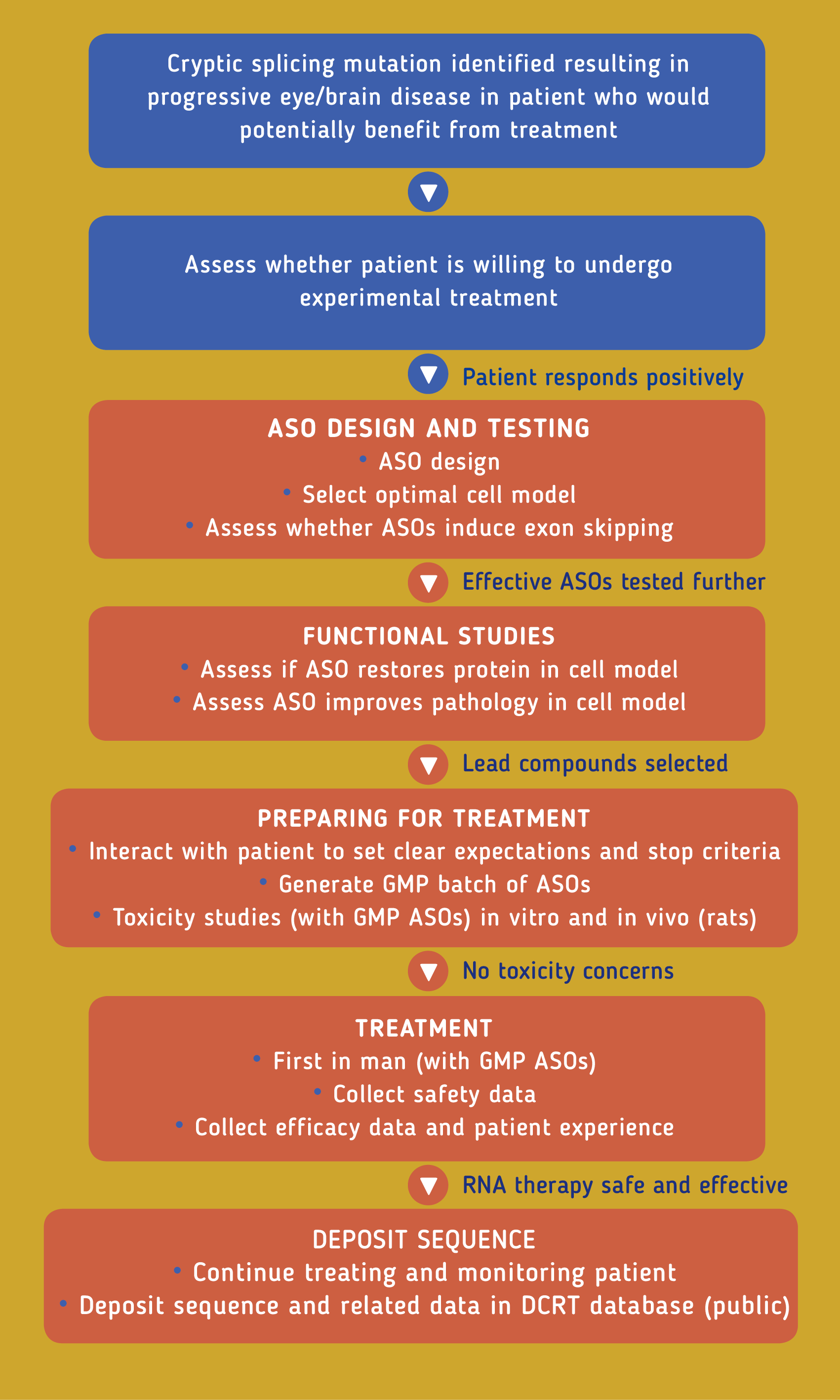Dutch Center for RNA Therapeutics (DCRT)
A nonprofit consortium of Leiden University Medical Center (LUMC), Radboudumc and Erasmus MC

RNA therapy for very rare diseases
Dutch Center for RNA Therapeutics (DCRT) is a nonprofit consortium of the medical centers Leiden University Medical Center (LUMC), Radboudumc (Nijmegen) and Erasmus MC (Rotterdam). The aim is to develop tailor-made RNA therapy for patients with rare genetic disorders. DCRT focuses on RNA therapy for patients in whom the affected tissue can be directly treated via local administration, i.e. the eye, the central nervous system, and skeletal muscles. DCRT wants to develop therapies for patients harbouring mutations that are eligible for RNA therapy, but which are so rare that there is no market for pharmaceutical companies. DCRT is the first center in Europe to develop RNA therapy for very rare diseases.
DCRT gene list and diseases of interest
For more information about our RNA therapy, you can send an email to DCRT@LUMC.nl.
Tissues
RNA therapy uses antisense oligonucleotides (ASOs) as therapeutic tools. Upon local administration to the target tissue, ASOs have a very long half-life. In this way high and long-term exposure is achieved locally, while the exposure of the drug to the rest of the body is very low. At the same time, the dosing frequency is also low (every 3-4 months).
Process of treatment development at DCRT
DCRT Charter
The DCRT charter documents the information pertinent to how DCRT (Dutch Center for RNA Therapeutics) operates and what is aspired. The charter includes the needs, scope, justification, and resource commitment and can be downloaded here.
DCRT Annual Report 2024
In 2024, the DCRT has made significant progress in the identification of eligible genes and testing of ASOs for individualized treatment of genetic brain and eye disorders. Read about our research, our papers and our guidelines in the 2024 annual report.
DCRT Annual Report 2023
DCRT's activities and progress in 2023 towards the design and the development of individualized RNA therapies are detailed in our current annual report. Would you like to learn more about our work? Send us an email and we will get back to you promptly.
DCRT Annual Report 2021-2022
DCRT is proud to present its first annual report which describes the consortium's activities in 2021 and 2022, the scientific progress and our plans for 2023. Any questions after reading our report? Please contact us at dcrt@lumc.nl.



